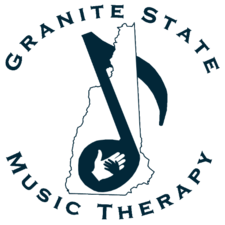Setting Intentions for the New Year
As we start the new year, I wanted to take a moment to talk about setting intentions and what that might look like. I think most of us are familiar with the idea of a new year’s resolution, but I’d like to challenge the way you approach your resolutions this year.
Leaning Into Gratitude All Year Long
In November, GSMT encouraged us all to “lean into gratitude” by slowing down and checking in with ourselves honestly. By noticing what’s helping, making space for small moments, celebrating small wins, pausing to breathe, and honoring our own personal journey, we can carry ourselves through the rest of the year with confidence and ease.
Practicing Gratitude
This month I want to talk about practicing gratitude. As we know, November is the month of Thanksgiving, expressing appreciation, and recognizing all of the good fortune that we have in our lives. This skill is especially important to practice in times of uncertainty, distress, and worry as it reminds us of the wonderful blessings that are always surrounding us.
Reflecting on a Year
My first year with Granite State Music Therapy was better than I ever could have anticipated. After taking a major risk and moving halfway across the country for this job, I hit the ground running and haven’t looked back!
It’s Fall, Ya’ll!
Welcome to fall! I hope you all had a restful summer and a smooth back to school transition this year. As the weather starts to cool off and the leaves begin to change, let’s talk a bit about the history of September, the holidays we celebrate, and the activities we enjoy!
Music, Memories, & Moments
This past weekend, GSMT’s Cassadi Kulak, and I went camping in Acadia National Park in Bar Harbor, Maine! The journey itself was part of the adventure. As we drove to our campsite on Friday, the road opened up, and we tuned into my “summer playlist.” This curated collection of songs sparked an interesting and rather insightful discussion between us: how different songs can evoke the distinct feelings and atmospheres of different seasons.
Patriotism in Many Forms
Patriotism is all about a deep love for your country, but there are a lot of different ways to express it. American culture presents a legacy built on resilience. What started as this amazing idea for a fairer life has turned into something truly incredible to admire and aspire to. And guess what? I even put together a playlist of songs that explore the American experience from all sorts of angles. I encourage you to give it a listen with an open mind and just see what you think. Seriously, one of the best ways to be patriotic is to respect everyone's different opinions.
The Importance of Practicing Self-Care
This month I really want to chat about the importance of practicing self-care, especially when it feels like the absolute last thing you have time or energy for. Ironically, self-care is often the most crucial thing we can do when we want to do it the least. In times of high stress or feeling completely overwhelmed, I always try to remind myself that I am capable of tackling the things on my to do list while being kind to myself along the way.
More Than Music: The Lasting Bonds of Music Therapy
Happy school vacation week to everyone in New Hampshire! This month's blog post is all about how music therapy is basically a super connector. It brings people together in all sorts of ways, from students in college, to professionals working with clients, and advocates pushing for music therapy's importance.
Happy World Music Therapy Week!
This month is an exciting one for the music therapy community, April 10th-15th is World Music Therapy Week! Originally recognized as World Music Therapy Day, the World Federation of Music Therapy (WFMT) further developed the celebration to encompass an entire week in April 2023 when we realized our celebration overlapped with Disability Day of Mourning on March 1st each year. As music therapists, it is immensely important to us that we support the communities we serve, not shadow them. This is what prompted the change.
Cultural Competencies in Music Therapy
As February comes to a close and we wrap up Black History Month, I want to take this opportunity to discuss something incredibly important: cultural competence. But what exactly does it mean? In essence, cultural competence refers to our ability to work effectively and respectfully with individuals from diverse cultural backgrounds. Culture itself is a rich blend of shared beliefs, values, worldviews, and traditions that define a group’s identity.
Love In All Its Forms: More Than Just Saying "I Love You"
There are many different ways to love. Words of affirmation, acts of service, quality time, receiving gifts, and physical touch, are commonly known as the five love languages. When we think of love languages, oftentimes we immediately associate them with romantic partnerships. That being said, love languages can also exist in friendships and familial relationships. Clearly, the biggest factor in the way we express love, comes down to the type of relationship in question. To highlight a few ways to express love, we have affectionate love, enduring love, and self love. Some of these are very easily defined, while some are a bit more nuanced.
Supporting Music Therapy in Australia
In a disappointing turn of events, the Minister for the National Disability Insurance Scheme (NDIS) of Australia, Bill Shorten MP and the National Disability Insurance Agency (NDIA) have removed music therapy as a therapy support for NDIS participants effective February 1, 2025.
Building Bonds Through Music Playlists
There are many benefits to listening to music. Not only is it fun, but it also has the ability to reduce stress, ease pain, elevate mood, encourage socialization, improve cognition, and facilitate emotional expression. Curated playlists are a great way to experience the healing power of music!
A Holistic Approach to Safety
Safety is a huge piece of the hierarchy of needs that human beings possess. But what is safety? We all know the basics like don’t touch the hot stove and don’t open the door to strangers, but how do we decide what is and is not safe for us when the answer isn’t quite so obvious? Merriam Webster defines safety as “the condition of being safe from undergoing or causing hurt, injury, or loss.” To truly understand how to protect ourselves, we must consider the different ways in which we can be hurt, injured, or lost: physically, psychologically, and emotionally.
The Three M’s of Stress Management
On a scientific level, stress activates the nervous system and contributes to disruptions in our immune function, sleep patterns, mental wellbeing, and physical health. There are a multitude of tools at our disposal to help us manage stress and counteract its negative impacts on our day to day functioning. My goal with this blog post is to highlight some tips and tricks to manage stress. Stress management looks different for everyone, so please take what resonates with you and leave what doesn’t.
One Step at a Time
I went ziplining at an adventure obstacle course over the weekend. As we were gearing up, it started to sink in what I had really signed up for. You get a 30-minute safety briefing, but then that's it. There you are on the podium, staring down at the ground far below. Standing high above the ground, I realized that the more I thought about everything that could go wrong, the more distracted I could become and potentially hurt myself. My mind became laser-focused on the task at hand. First, make sure the equipment is put on correctly. Second, figure out the best way to start the obstacle. Third, start. This initially felt strange because I tend to overthink everything. Learning something quickly and then just doing it felt very far out of my comfort zone.
World Brain Day: Awareness for Neurological Disorders and How Music Can Help
The primary aim of World Brain Day is to raise awareness about brain health and to educate the public on the importance of preventing and detecting neurological disorders early. Research shows that music training can protect the brain years before there is any sign of decline. Our brain relies on plasticity and grey matter to learn new things. Playing music has been found to increase grey matter, and keep the brain active. So, it not only can help with individuals with memory impairments, but can also protect the brain from cognitive decline.
Enhancing Speech with a Musical Workout for the Brain
Music is a great tool to work on speech and language development in children. It also can be used to restore language skills for an individual who has a neurological disorder. But why? There are many similarities between how speech and language are processed in the brain, and how music is processed in the brain. The OPERA hypothesis goes through the five reasons why music may enhance language learning, and how it could possibly help someone even more than speech alone.
Juneteenth: A Journey of Freedom, Music, and Resilience
On January 1st 1863, President Abraham Lincoln issued the Emancipation Proclamation. This was the date that went down in history as the day that freed the slaves. However, not all the slaves could be freed. It could not immediately be implemented in states still under confederate control. So, for over 250,000 enslaved black people in Texas, their freedom did not come until over 2 years later, when troops arrived with an executive decree. This occurred on June 19th, 1865, which became known as Juneteenth.





















